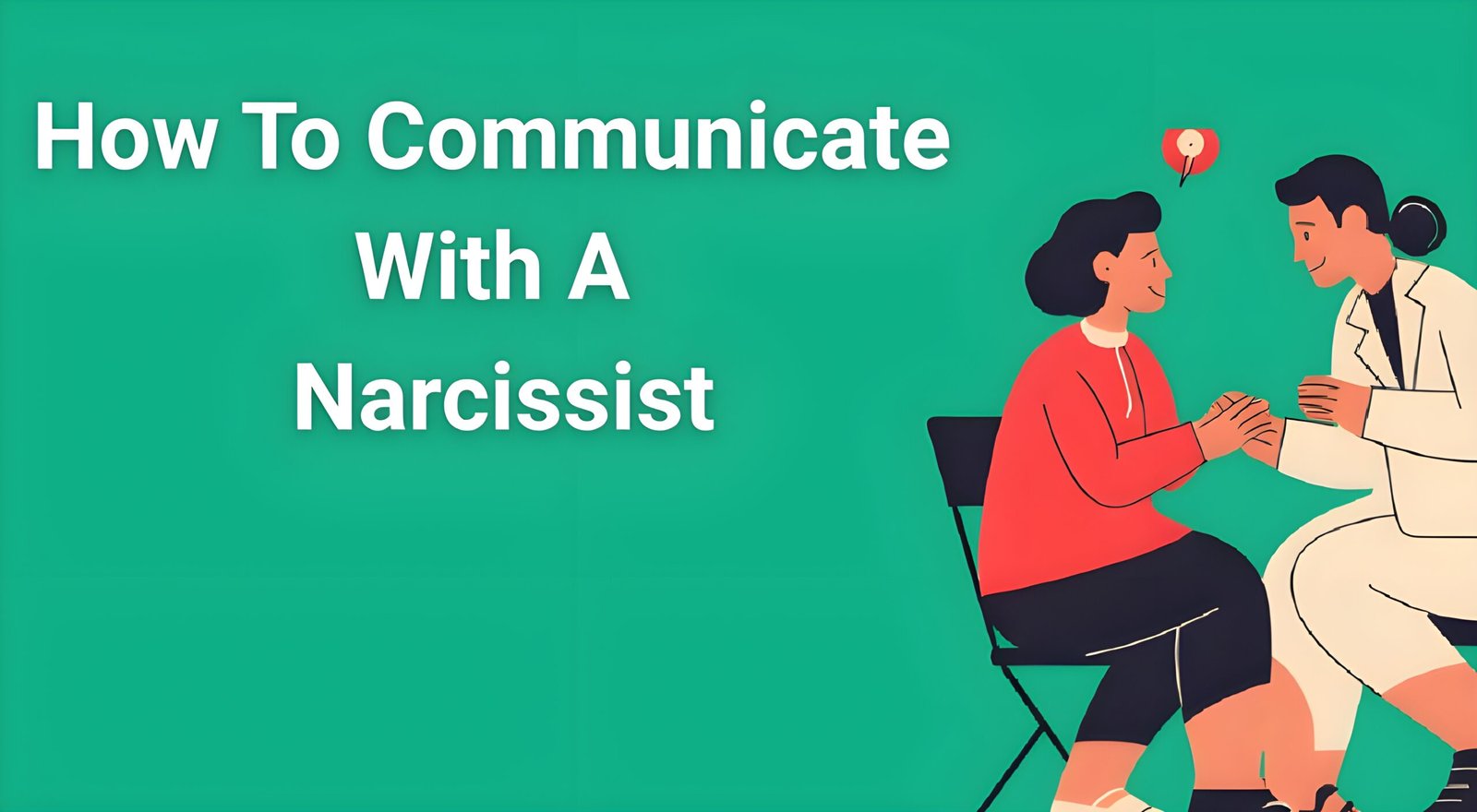Breaking up with anyone is challenging, but learning how to break up with a narcissist male requires careful planning, unwavering determination, and specific safety strategies that regular breakups don’t demand. If you’re reading this, you’ve likely recognized the toxic patterns in your relationship and are ready to reclaim your life from someone who has systematically undermined your self-worth and reality.
- Understanding Why Breaking Up With a Narcissist Male Is Different
- Phase 1: Pre-Breakup Planning and Safety Preparation
- Phase 2: The Breakup Conversation and Immediate Aftermath
- Phase 3: Recovery and Rebuilding Your Life
- Long-Term Strategies for Staying Free
- Moving Forward: Life After a Narcissistic Relationship
- Frequently Asked Questions
- Conclusion: Your Freedom Is Worth the Fight
The process of leaving a narcissistic boyfriend or male partner isn’t just emotionally difficult—it can be dangerous without proper preparation. Narcissistic men often respond to rejection with rage, manipulation, and escalating control tactics that can put you at risk. This comprehensive guide will walk you through every phase of safely ending your relationship with a narcissist male, from initial planning to long-term recovery.
Understanding Why Breaking Up With a Narcissist Male Is Different
The Narcissistic Male’s Response to Abandonment
When you attempt to break up with a narcissist male, you’re not dealing with someone who will respect your decision or process rejection healthily. Narcissistic men view relationships as power dynamics where they maintain control. Your decision to leave threatens their carefully constructed image and triggers what experts call “narcissistic rage.”
Unlike emotionally healthy partners who might be hurt but ultimately respect your choice, a narcissistic boyfriend will likely deploy every manipulation tactic in his arsenal to maintain control. This includes love bombing (sudden overwhelming affection), guilt-tripping, threats, smear campaigns, and financial manipulation.
The Trauma Bond That Keeps You Stuck
One reason it’s so difficult to break up with a narcissist male is the trauma bond that develops over time. This psychological attachment forms through cycles of abuse followed by periods of kindness and affection. Your brain becomes addicted to the relief that comes after periods of mistreatment, creating a neurological dependence that feels like love but is actually a survival mechanism.
Understanding that your attachment isn’t genuine love—but rather a trauma response—is crucial for maintaining your resolve during the breakup process. The intense emotions you feel aren’t weakness; they’re the result of calculated psychological manipulation designed to keep you trapped.
Phase 1: Pre-Breakup Planning and Safety Preparation
Document the Abuse
Before you even hint at ending the relationship, start documenting patterns of narcissistic abuse. Create a private journal (stored securely away from your home) where you record:
- Specific incidents of emotional manipulation
- Examples of gaslighting and reality distortion
- Financial control or abuse
- Threats or intimidation
- Isolation from friends and family
- Patterns of rage or explosive behavior
This documentation serves multiple purposes: it helps you maintain clarity about why you’re leaving when the narcissist tries to manipulate you back, provides evidence if legal action becomes necessary, and validates your experiences when self-doubt creeps in.
Secure Your Finances
Financial abuse is common in relationships with narcissistic men. They often control bank accounts, credit cards, and financial resources to maintain power. To break up with a narcissist male safely, you need financial independence:
- Open a secret bank account at a different institution
- Gradually transfer small amounts of money to your private account
- Collect important financial documents (tax returns, bank statements, insurance policies)
- Remove your name from joint accounts when possible
- Change direct deposit to your private account
- Secure your credit report and place fraud alerts if necessary
Build Your Support Network
Narcissistic partners systematically isolate their victims from friends and family. Rebuilding these connections before your breakup is essential:
- Reach out to trusted friends or family members who knew you before the relationship
- Consider joining support groups for narcissistic abuse survivors
- Find a therapist who specializes in narcissistic abuse recovery
- Identify safe people who can provide emergency housing if needed
- Create code words with trusted contacts for emergency situations
Create a Safety Plan
This is perhaps the most critical aspect of how to break up with a narcissist male. Your safety plan should include:
Physical Safety:
- Identify safe places to go (friends’ homes, family, shelters)
- Keep important documents in a secure location outside your home
- Have a bag packed with essentials stored at a trusted friend’s house
- Plan multiple exit routes from your home
- Consider changing locks or staying elsewhere after the breakup
Digital Safety:
- Change all passwords to accounts the narcissist might access
- Check for tracking apps on your phone or computer
- Create new email accounts for private communication
- Review privacy settings on social media accounts
- Consider getting a new phone number
Legal Considerations:
- Consult with a family law attorney if you’re married or have shared assets
- Understand your rights regarding shared property
- Research restraining order procedures in your area
- Document any threats or evidence of stalking behavior
Phase 2: The Breakup Conversation and Immediate Aftermath
Choosing the Right Time and Place
When you’re ready to break up with a narcissist male, the setting and timing of this conversation can significantly impact your safety and the outcome. Choose a public place where he’s less likely to explode or become physically aggressive. Avoid places where you might be trapped (his car, your apartment, isolated locations).
Consider having the conversation over the phone if you fear for your physical safety. While this might seem impersonal, your safety takes precedence over social conventions.
What to Say (and What Not to Say)
Keep your message simple, direct, and non-negotiable:
Effective approach: “I’ve decided to end our relationship. This decision is final, and I won’t be discussing it further.”
Avoid these mistakes:
- Don’t give detailed explanations that can be argued against
- Don’t use “I” statements about feelings that can be minimized
- Don’t mention specific incidents he can deny or reframe
- Don’t leave room for negotiation or “working things out”
Remember, you’re not asking for his permission or approval. You’re informing him of your decision.
Preparing for His Predictable Reactions
Understanding how narcissistic men typically respond to breakups helps you prepare mentally and emotionally:
Love Bombing Stage: He may suddenly become the perfect boyfriend, showering you with gifts, promises to change, and overwhelming affection. This is manipulation, not genuine transformation.
Rage Stage: When love bombing fails, expect anger, blame, and possible threats. He may try to destroy your reputation, contact your friends and family with lies, or become aggressive.
Bargaining Stage: He might promise therapy, lifestyle changes, or anything he thinks will work. These promises are typically empty and designed to buy time to regain control.
Punishment Stage: If other tactics fail, he may try to hurt you through financial sabotage, legal threats, or attempting to turn others against you.
Implementing No Contact Immediately
No contact means exactly that—no communication of any kind. This includes:
- No phone calls, texts, or emails
- No social media interaction or stalking his profiles
- No communication through mutual friends
- No responding to attempts to contact you
- No “closure” conversations or meetings
No contact is essential because any communication gives him an opportunity to manipulate you back into the relationship. Even negative interactions provide the attention and control he craves.
Phase 3: Recovery and Rebuilding Your Life
Understanding the Withdrawal Process
Breaking up with a narcissist male often triggers a withdrawal process similar to drug addiction. The trauma bond created neurological pathways that make you crave the relationship despite knowing it was harmful. Expect to experience:
- Intense longing and missing him
- Doubting your decision to leave
- Physical symptoms like anxiety, insomnia, or depression
- Urges to contact him or check his social media
- Memories focusing on the “good times”
These feelings are normal and temporary. They’re evidence of the psychological manipulation you endured, not proof that you made the wrong decision.
Rebuilding Your Identity
Narcissistic relationships systematically erode your sense of self. Recovery involves rediscovering who you are outside of his influence:
- Reconnect with old interests that he criticized or discouraged
- Spend time with people who knew you before the relationship
- Practice making decisions without considering his preferences
- Rediscover your values and beliefs that may have been suppressed
- Set new goals that reflect your authentic desires
Professional Support and Therapy
Working with a therapist who understands narcissistic abuse is crucial for complete recovery. They can help you:
- Process the trauma and manipulation you experienced
- Identify patterns that made you vulnerable to narcissistic abuse
- Develop healthy relationship skills for the future
- Work through any underlying issues that need attention
- Create strategies for maintaining no contact
For those seeking immediate clarity about their situation, a comprehensive analysis can help validate your experiences and provide personalized guidance. Understanding exactly what type of narcissistic abuse you endured and receiving expert insights about your specific situation can accelerate your healing process and provide the validation you need to stay committed to your decision.
Breaking the Trauma Bond
Healing from a trauma bond requires more than just understanding what happened—it requires actively rewiring your brain’s response patterns. This process involves:
Cognitive Restructuring: Learning to recognize and challenge the distorted thoughts created by months or years of gaslighting and manipulation.
Emotional Regulation: Developing healthy coping mechanisms for managing the intense emotions that arise during recovery.
Behavioral Changes: Breaking habitual patterns like checking his social media, driving by his house, or engaging in behaviors that keep you connected to the relationship.
For those struggling with the compulsive urges and obsessive thoughts that characterize trauma bonding, specialized recovery programs can provide structured, day-by-day guidance for breaking free from these patterns. A systematic approach that addresses the neurological aspects of trauma bonding often proves more effective than willpower alone.
Protecting Yourself from Future Narcissistic Relationships
Recovery isn’t just about healing from your current situation—it’s about developing the awareness and skills to avoid similar relationships in the future. This involves:
- Learning to identify red flags early in relationships
- Understanding your own vulnerabilities and triggers
- Developing strong boundaries and the ability to enforce them
- Building a support network that will hold you accountable
- Working on any underlying issues that made you susceptible to narcissistic abuse
Dealing with Hoovering and Comeback Attempts
Even after months of no contact, narcissistic men often attempt to re-enter their former partners’ lives through a process called “hoovering.” These attempts might include:
- Sudden contact after long periods of silence
- Using mutual friends or family members as intermediaries
- Creating fake emergencies to force contact
- Appearing at places you frequent
- Sending gifts or letters
Preparing for these attempts and having a plan to handle them is crucial for maintaining your freedom and progress.
Long-Term Strategies for Staying Free
Creating Accountability Systems
Surround yourself with people who understand the dynamics of narcissistic abuse and who will remind you of the truth when your resolve weakens. This might include:
- Regular check-ins with a therapist or counselor
- Participation in support groups for abuse survivors
- Trusted friends who will intervene if they see warning signs
- Written reminders of why you left that you can refer to during weak moments
Developing Emotional Intelligence
One of the long-term benefits of surviving a narcissistic relationship is the development of heightened emotional intelligence. Use this experience to:
- Trust your intuition about people and relationships
- Recognize manipulation tactics in all areas of life
- Develop empathy for others in similar situations
- Build authentic, healthy relationships based on mutual respect
Maintaining Boundaries in All Relationships
The boundary-setting skills you develop while breaking up with a narcissist male will serve you well in all future relationships. Practice:
- Saying no without feeling guilty
- Expressing your needs directly and clearly
- Recognizing when others try to manipulate or control you
- Maintaining your independence within relationships
Supporting Others in Similar Situations
Many survivors find meaning and continued healing by helping others who are still trapped in narcissistic relationships. Whether through formal advocacy, support groups, or simply being available to friends who need guidance, sharing your experience can be both healing and purposeful.
When you’re ready to take the next step in permanently breaking free from trauma bonding patterns, structured support programs can provide the daily guidance needed to rewire your brain’s response to the relationship. These programs recognize that leaving a narcissist is just the beginning—true freedom comes from breaking the psychological chains that keep you connected even after physical separation.
Moving Forward: Life After a Narcissistic Relationship
Rediscovering Joy and Authentic Relationships
One of the most beautiful aspects of recovery from narcissistic abuse is rediscovering your capacity for joy, authentic connection, and genuine love. After living in a state of constant hypervigilance and emotional suppression, many survivors report that life feels more vivid and meaningful than ever before.
Building Healthy Relationship Patterns
Future relationships will feel different when you’re no longer operating from a place of trauma and survival. Healthy partners will:
- Respect your boundaries consistently
- Support your individual growth and interests
- Communicate openly and honestly
- Take responsibility for their actions and emotions
- Celebrate your successes rather than compete with you
Celebrating Your Strength and Courage
Breaking up with a narcissist male requires tremendous courage and strength. The fact that you recognized the abuse, planned your escape, and followed through despite the fear and manipulation demonstrates incredible resilience. Celebrate these qualities and carry them forward into your new life.
Frequently Asked Questions
Q: How long does it take to recover from a relationship with a narcissist male? A: Recovery timelines vary greatly depending on the length and intensity of the relationship, your support system, and whether you seek professional help. Most people notice significant improvement within 6-12 months of no contact, but complete healing can take 1-3 years or longer.
Q: Will he ever change or realize what he did wrong?
A: Genuine change in narcissistic personality patterns is extremely rare and requires intensive, long-term therapy that most narcissists resist. It’s essential to base your decisions on his current behavior, not hopes for future change.
Q: What if we have children together?
A: Co-parenting with a narcissistic ex requires special strategies including parallel parenting, documented communication, and possibly court-ordered supervision. Consider working with professionals who understand narcissistic abuse in custody situations.
Q: How do I handle mutual friends who don’t understand why I left?
A: Focus on relationships with people who support you without requiring detailed explanations. Many friends may not understand narcissistic abuse dynamics, and that’s okay. Your safety and healing take priority over maintaining all social connections.
Q: What if he threatens to hurt himself if I leave? A: Threats of self-harm are often manipulation tactics designed to control you through guilt and fear. If you believe there’s a genuine risk, contact emergency services or crisis hotlines, but don’t let these threats keep you trapped in an abusive relationship.
Q: How do I know if I’m really being abused or if I’m overreacting?
A: If you’re questioning your reality and wondering if you’re “overreacting,” this is often a sign that you’ve been subjected to gaslighting. Trust your instincts and consider seeking an objective professional assessment of your situation.
Conclusion: Your Freedom Is Worth the Fight
Learning how to break up with a narcissist male is one of the most challenging but ultimately liberating experiences you can have. The process requires careful planning, unwavering commitment, and usually professional support, but the freedom and peace that await you on the other side make every difficult moment worthwhile.
Remember that your decision to leave isn’t just about ending a relationship—it’s about reclaiming your right to be treated with respect, dignity, and genuine love. You deserve a partner who builds you up rather than tears you down, who celebrates your strengths rather than exploiting your vulnerabilities, and who sees you as an equal rather than someone to control.
The path forward isn’t always easy, but it leads to a life where you can be authentically yourself, trust your own perceptions, and build relationships based on mutual respect and genuine care. Every step you take away from narcissistic abuse is a step toward the life you truly deserve.
Your courage in considering this journey is already evidence of your strength. Trust that strength, lean on your support system, and remember that freedom from narcissistic abuse is not just possible—it’s your right. The hardest part is making the decision to leave. Once you’ve taken that step, each day will bring you closer to the peace and authenticity you’ve been missing.
For personalized guidance tailored to your specific situation, professional support can provide the clarity and validation needed to move forward with confidence. Your healing journey is unique, and having expert insight into your particular circumstances can make the difference between struggling alone and having a clear roadmap to freedom.






